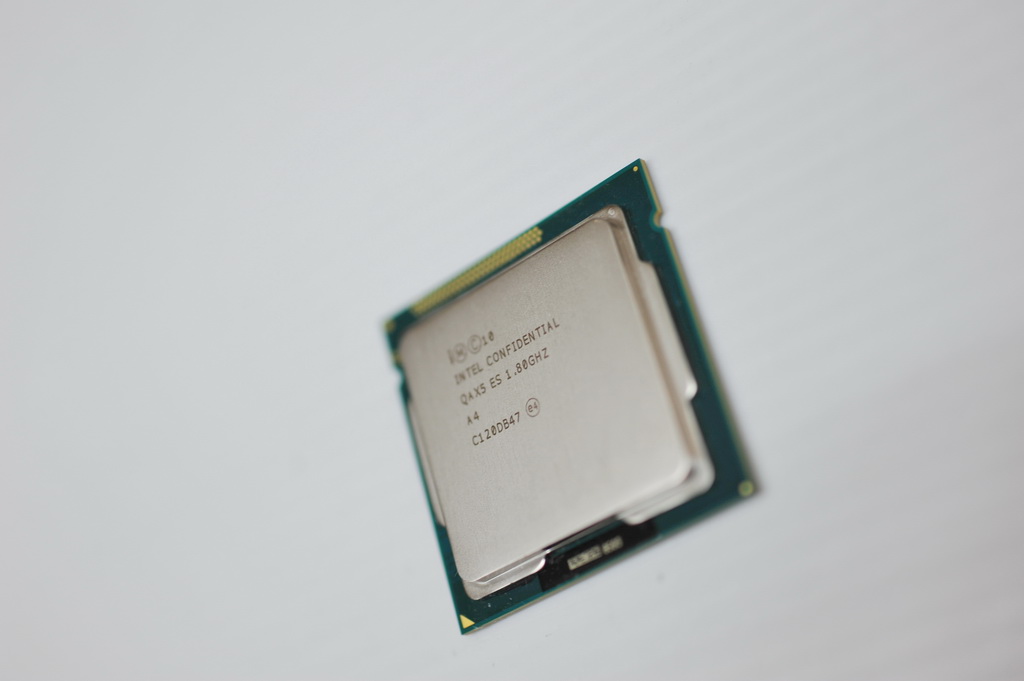Report: Intel to Increase Ivy Bridge Production Share to 70%
Intel's Sandy Bridge processors are being quickly phased out as Intel ramps up its 22 nm Ivy Bridge generation.
Fudzilla recently reported that the Core i7-2700K will begin its phase-out stage already in Q4, just one year after its introduction. Final shipments should take place in the second quarter of next year, along with the 2600K and 2500K models, which will also be phased out.
Of course, there is good reasoning, as Intel has to drive the economics of scale through its 22 nm processor, which will be succeeded by Haswell in Q2 2013. Intel's tick-tock cadence, which foresees a die-shrink in uneven years and a new architecture in even years, is clearly behind the promise Intel gave back in the 2005/2006 time frame, so it wouldn't (and shouldn't) be too surprising to see a slight speed-up in processor lifecycles.
German publication HT4U reported that 70 percent of Intel's processor production in the fourth quarter will be Ivy Bridge models. There was no official confirmation for this number, but given Intel's announcement during the Q2 earnings call that Ivy Bridge production had crossed the 50 percent mark, the 70 percent estimate sounds reasonable and perhaps even a bit conservative. Considering the pressure for the PC market to regain traction and produce appealing devices for Windows 8, anything less than a 75 percent share for Ivy Bridge by the end of the year would be disappointing.
Contact Us for News Tips, Corrections and Feedback
Get Tom's Hardware's best news and in-depth reviews, straight to your inbox.

Wolfgang Gruener is an experienced professional in digital strategy and content, specializing in web strategy, content architecture, user experience, and applying AI in content operations within the insurtech industry. His previous roles include Director, Digital Strategy and Content Experience at American Eagle, Managing Editor at TG Daily, and contributing to publications like Tom's Guide and Tom's Hardware.
-
noobzilla771 Sadly, there's no need for Intel to rush in the new chips since Sandy Bridge pretty much still owns AMD in terms of cpu performance. AMD, whatever happened to you :(Reply -
dark_knight33 noobzilla771Sadly, there's no need for Intel to rush in the new chips since Sandy Bridge pretty much still owns AMD in terms of cpu performance. AMD, whatever happened to youReply
Innovation shouldn't be dictated solely by competition. While competition did drive Intel to dump netburst and create it's successful Core2 line, if competition were the only factor propelling new CPU technology, we might never have gotten out of the 486 days. ;) -
InvalidError Intel still needs to compete against itself (and a plethora of ARM-based devices) if it wants to continue selling chips. If they stop improving enough to give people a convincing sales pitch, nobody will bother upgrading anymore and Intel's PC-centric revenues will crash.Reply
Regardless of what happens to AMD, Intel still needs to keep moving forward if they do not want to risk a market take-over by ARM64/Android later in the office and HTPC markets. -
phate noobzilla771Sadly, there's no need for Intel to rush in the new chips since Sandy Bridge pretty much still owns AMD in terms of cpu performance. AMD, whatever happened to youReply
Fortunately - for now - what this article tells us is that Intel is still being aggressive in updating their lineup. And seeing as how low power Haswell is Intel's strategy for entering the mobile market, it looks like AMD is irrelevant either way.
Intel has to stay on it's toes to try and combat ARM regardless of AMD's poor showing. -
luciferano hydac7AMD hello helloo helooo , anybody there? .. echo echoo echooo , hmm guess it's empty over there .. And when is Intel gonna drop the prices a bit ? huh , ? .. sighReply
Intel has been dropping prices (albeit slowly) and AMD is improving. They'll catch up if Intel doesn't keep improving, so Intel will keep improving too. -
sherlockwing I wonder with Intel shutting down Sandy line will we get binned chips for Ivy like i5-3590K(3.5Ghz) & i7-3790K(3.6Ghz) much like i5-2550K & i7-2700K which Intel pushed out around this time last year.Reply -
luciferano sherlockwingI wonder with Intel shutting down Sandy line will we get binned chips for Ivy like i5-3590K(3.5Ghz) & i7-3790K(3.6Ghz) much like i5-2550K & i7-2700K which Intel pushed out around this time last year.Reply
2700K and such might have launched about a year ago, but Ivy launched in the end of April whereas Sandy launched in January, so assuming a year between launch and better binned launches, we're a few months off. -
ozvip3r So what you're telling us is that sandy bridge and Haskell are die shrinks where as ivy bridge was a new architecture, lol!Reply
